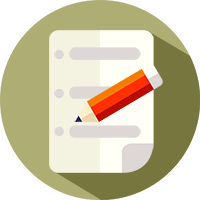Coach's VIEW is a business column authored by executive coaches in COACH A, aimed at providing valuable insights and effective approaches for leveraging coaching to foster organizational and leadership development. The column draws on the latest coaching trends and data, as well as insights from notable global publications on coaching.
Focused Attention: What Every Leader Needs to Know

January 14, 2020

How many times have you tried to focus on the employee in front of you but your mind is on the background chatter, your vibrating phone or that email you haven’t opened? Do you rush them through their concerns, interrupt them, or attempt to 'fix it' before fully understanding the issue? These are signs you are distracted and not fully focused on the task at hand. And this is not only stressful but can reduce your productivity and performance.
The mark of a truly effective leader is the agile ability to choose where to focus one’s attention despite the many distractions in the workplace. This is no easy feat considering we are interrupted every 11 minutes and our brains take 25 minutes to refocus on the original task according to a recent study conducted by the Department of Informatics University of California, Irvine, CA, U.S.A. and the Institute of Psychology at Humboldt University Berlin, Germany.
The need to manage distractions is obvious. A distraction is anything that prevents your full and focused attention to something and disturbs your thinking or emotions. Distractions can be broken down into three types:
- Sensory - The constant murmur of background sounds, shapes, colors, smells, etc.
- Emotional - Emotionally-triggered comments or signals (i.e., someone nearby mentions your name in a hushed voice while you are trying to organize a report).
- Technological - Digital information overwhelm such as emails, texts, chats, and phone calls.
Emotional distractions are by far the most hazardous because it requires a well-trained mind to tune them out. We might be aware of stress management techniques yet fail to consistently implement them. With a little more attention, you can effectively manage emotional distractions and choose where you put your attention.
Don't Fight the Feeling
The trick here is not to fight the emotions. Accept them. Acknowledge them. This allows us to move on from them much faster than when they are ignored. This doesn’t mean you are “OK” with the situation causing the emotional distraction, you are just consciously telling yourself, “OK, this happened, and I don't like it, but right now, I need to put that aside and concentrate on this project. When I have time, later on, I can re-visit it (or when I get home, etc.) just commit to addressing it later so you can have some peace of mind at that moment that is requiring your attention.
Make a Deal with Yourself
Set boundaries with yourself. Make a contract with yourself to stay focused from one minute to the next, renewing the contract as needed. After a while, you won’t have to do this minute to minute, maybe every 5-10 minutes, and so on. This encourages us to set boundaries with our thoughts.
Create a Transition Practice
Begin in the first 60 seconds after leaving the house for the day. Listen to music, for example, and remind yourself that you are leaving personal concerns behind while you focus on your work. It only takes 60 seconds to shift your attention to your work. You can even do this from task to task, meeting to meeting, etc. Whatever it takes to help you maximize your attention. You can also do this in reverse, so to speak, from work back to home. Use the first 60 seconds as you pull away from work to transition back to home. That way, once you are home, your mind has had time to shift its focus.
Get Some Exercise and Sleep
When we get regular exercise and proper sleep, we function better. Being tired, hungry, and physically lethargic at work drains our ability to pay attention.
Clearly, this can be extremely challenging. And leaders cannot always pay attention to something at the expense of everything else around us. However, maximizing our attention can improve our leadership performance.
To improve your focused and selective attention, consider utilizing the following techniques. None of these will work in every situation - your position may be different than others, so focus on the one or two that might work well for you.
Take a Brain Break
Schedule these two or three times a day for five to ten minutes. Get up from the desk and take a walk or close your eyes to give them a brief break. Shifting your focus away from your work and back to it can significantly help with concentration and will save you more time in the long run.
Practice Noticing and Releasing Distracting Thoughts
Consider doing this before you begin a particularly difficult task that requires all your attention. Spend a minute or two recognizing what is going on internally, what you are thinking and let those thoughts go. If the thoughts enter your mind again just notice and release them again.
Change Your Routine
Our brains easily go on autopilot when doing mundane tasks. To improve our ability to select what we focus on, practice going off autopilot. Pick a routine activity (brushing your teeth, drinking coffee, preparing a meal, etc.) and paying full attention to it. See if you can be fully present to it as you do it.
Scan Your Body
When our body is stressed and tense, we may be jeopardizing our ability to focus. For example, do you know where you hold your tension in your body? Do you clench your teeth or hunch your shoulders while working?
By taking a minute to do a body scan, we train our minds to move from detailed attention to a broader awareness from one moment to the next. Begin by focusing your attention on the top of your head, then move down the body. You might be surprised to realize how unaware we are of our bodies at times.
Scan the Landscape
Being more effective as a leader often involves taking our time. One way to maximize your attention is to slow down and do a scan of your environment. Do you have what you need in front of you or at your desk, for example, to get the task done?
Stop Trying to Multi-Task
Constantly shifting your attention can actually sap our attention from full, concentrated engagement. Research has shown that switching tasks creates a mental block that reduces productivity, and people who multitask regularly have less ability to concentrate.
So, if you have been multitasking, consider the negative effect on your ability to pay attention. Experts in the field of concentration and attention recommend slowing down and placing your focus on one task at a time - in the long term, you will get more done efficiently and effectively.
Workplace distractions negatively impact leadership performance, and productivity, according to a recent survey conducted by Udemy, an on-line training company. Even a brief interruption doubles the error rate. Leaders need to work smarter - not faster or longer hours - using selective focus to avoid stress, frustration, and a loss of their overall wellbeing.
Language: Japanese
References and Resources
Brain, Interrupted by Bob Sullivan and Hugh Thompson
New York Times, May 3, 2013
Workplace Distractions: Here's Why You Won't Finish This Article by Rachel Emma Silverman
Wall Street Journal Dec. 11, 2012
Udemy In Depth: 2018 Workplace Distraction Report
Brief Interruptions Spawn Errors by Gregory Trafton and Zach Hambrick
MSU Today, Michigan University Jan. 7, 2013
Does Multitasking Effect Concentration? by Chris Adams
About.com. March 6, 2019
Focus-the hidden driver of excellence by Daniel Goleman
May 5, 2015
Mindfulness-An eight-week plan for finding peace in a frantic world
by Mark Williams and Danny Penman October 25, 2011
*Regardless of profit, non-profit or intranet, secondary use such as copying, diversion, selling etc. is prohibited without permission.
Language: Japanese
